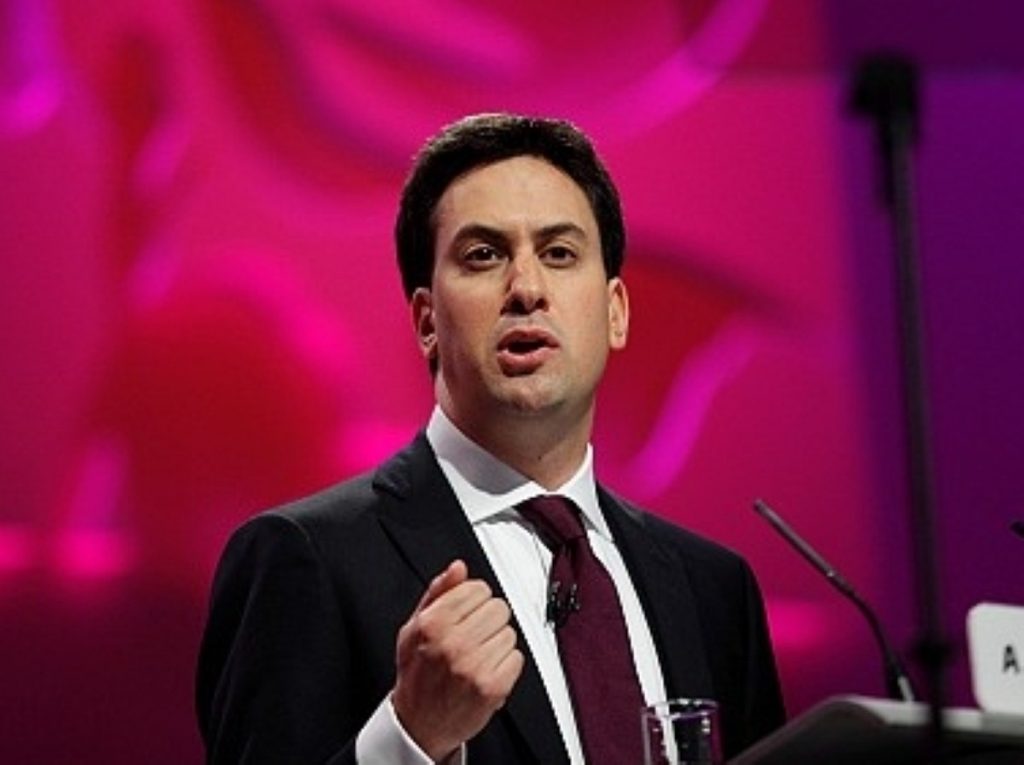Ed Miliband starts Labour’s next chapter
Ed Miliband has provided a decisive break with the New Labour era by championing his “new generation” in his first leader’s speech to the party conference in Manchester.
The new leader of the opposition broke away from Tony Blair and Gordon Brown’s legacy by stating his opposition to the war on Iraq, opposing New Labour’s attitude to civil liberties abuses and calling on the party to “be honest” about having lost touch with voters.
Ed Miliband speech analysis: A bold and decisive shift


“We have to show we understand the problems people face today,” he told delegates.
“This will require strong leadership. It won’t always be easy. You might not always like what I have to say. But you’ve elected me leader and lead I will.”
Comment: A speech that could save Labour
His speech was welcomed by senior party figures. Shadow environment secretary Hilary Benn called it “magnificent”, shadow Europe minister praised Mr Miliband’s “evident humanity” while Labour MP Stephen Pound called it “absolutely extraordinary”.
Ed Miliband speech: Reactions from Manchester
Coalition government figures turned on Labour’s new leader, however. Conservative chairman Sayeeda Warsi called Mr Miliband “a man without a plan” and Liberal Democrat president Simon Hughes dismissed the attempt to move on from New Labour.
“One speech can’t wash away his record as a key part of the New Labour government that trampled on our civil liberties and left our economy in ruins,” he commented.
Mr Miliband avoided giving a clear signal that he intends to take Labour away from the centre-left of British politics, saying to those who call him ‘Red Ed’: “Come off it.”
“Let’s start to have a grown up debate in this country about who we are and where we want to go and what kind of country we want to build,” he added, to huge applause from party members.
He repeatedly referred to a “new generation” of politicians as he looked to lead his party away from the New Labour mindset.
“The new generation of Labour is different. Different attitudes, different ideas, different ways of doing politics,” he said.
Review politics.co.uk’s as-it-happened coverage here
By praising New Labour’s original strength as being the ability to change and “challenging the conventional wisdom” he eased his own task of shifting Labour’s paradigms once again.
“We began as restless and radical. Remember the spirit of 1997, but by the end of our time in office we had lost our way,” he continued.
Mr Miliband broke free from his party’s record in government on Iraq, telling members whose government participated in the 2003 invasion: “I do believe that we were wrong. Wrong to take Britain to war and we need to be honest about that.”
Labour delegates interrupted him by clapping enthusiastically. David Miliband did not join in the applause, however.
Mr Miliband continued: “Wrong because that war was not a last resort, because we did not build sufficient alliances and because we undermined the United Nations. America has drawn a line under Iraq and so must we.”
Footage from ITV News showed David Miliband turning to the party’s deputy leader, Harriet Harman, and confronting her about her support for the U-turn.
“Why are you clapping? You voted for it,” David Miliband is seen to ask Ms Harman.
She replies: “I’m clapping because he’s leader and I’m supporting him.”
He did not lurch to the left on other issues, instead confronting the trade unions whose support proved decisive in allowing him to win the Labour leadership over his elder brother.
“We need to win the public to our cause and what we must avoid at all costs is alienating them and adding to the book of historic union failures,” he urged.
“That is why I have no truck, and you should have no truck, with overblown rhetoric about waves of irresponsible strikes. The public won’t support them. I won’t support them. And you shouldn’t support them either.”
Mr Miliband also suggested he was prepared to avoid confronting the coalition government on other issues. His comments on welfare, on seeking a “genuine plan” to cut spending, and against the government as a “vested interest” went against the New Labour grain.
He concluded by positioning himself as being an optimistic alternative to the “miserable, pessimistic” prime minister.
“There is a defining difference between us and David Cameron.. and that is optimism,” he concluded.
“Let the message go out, a new generation has taken charge of Labour. Optimistic about our country. Optimistic about our world. Optimistic about the power of politics.
“We are the optimists and together we will change Britain.”









